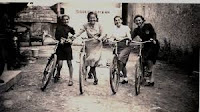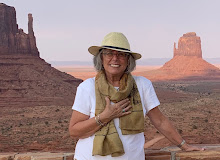For the past several years I have been a pre-screener of documentaries features and shorts for the Social Impact Media Awards. SIMA is an online platform founded in 2012 by Daniela Kon, to curate, promote and distribute documentaries (https://simastudios.org).
What has stood out every year is the number and quality of documentaries made in Israel, produced with private and public funding. It is a thriving scene that deserves ample distribution and scholarly assessment. Below I discuss a number of excellent titles, made between 2021 and 2024. I have included some of them in the Senses of Cinema World Poll of 2023 and 2024.
I have organized them in five main categories, according to subject matter:
1. The Jewish experience in Europe in the 1940s: The Address on the Wall (2022), Budapest Diaries (2024), 999: The Forgotten Girls (2023) and The Partisan with the Leica Camera.
40 Steps / 40 Tzeadim (2022), Generation 1.5 (2022), Homeboys (2022), Mourning in Lod (2023) and #Schoolyard. An Untold Story (2021).
“To the general public, the word ‘documentary’ or ‘nonfiction film’ is a narrow band. And we think that the feature film is this huge magnificent spectrum. But if you really look at it, the feature film is governed by a formula and laws of plot that make it, I believe, the narrow band in the spectrum. And it’s the documentary, it’s the nonfiction film, that has so many glorious possibilities.” (Liz Stubbs, Documentary Filmmakers Speak, 2002).
2023
999: The Forgotten Girls is a topnotch documentary combining a decade of archival research in public and private repositories, with oral history-style interviews in a gripping narrative structure, to present the story of the first contingent of young unmarried Jewish women, sent from annexed Czechoslovakia to Auschwitz /Birkenau in 1942. Directed by historian Heather Dune Macadam, based on her book 999: The Extraordinary Young Women of the First Jewish Transport to Auschwitz (2020), the film is a superb example of how editing literally “builds” a documentary from diverse materials: photos and home movies, prisoner art, commissioned drawings and brief excerpts from other films. It is a powerful audiovisual portrait of grit, courage, optimism and solidarity, about women who recount their lives between 1942 and 1945, without specific footage, about their camp survival experience.
With a remarkable sense of story structure and an open end that refuses a neat resolution to the interwoven stories of Israeli Jews and Arabs in a town near Tel Aviv, Hilla Medalia makes another documentary on a knotty subject. It is a riveting film combining powerful, heartfelt interviews by family members who lost dear ones or gained a life thanks to a transplant from one of them; archival footage (from television news, cellphones, security cameras) and dramatic scenes staged for the camera, like the visit paid by the Arab woman who received the transplant to the Jewish family grieving for their dead father.
Mourning in Lod does not favor a point of view over others, neither offers praise or condemnation, or espouses “what-aboutism”. It is an honest and raw look from all angles, giving space to viewers to reach their own conclusions, with an above par use of the documentary strategies. Bombarded like we are by ideologies and propaganda, Mourning in Lod offers a sober look not to be missed.






No comments:
Post a Comment